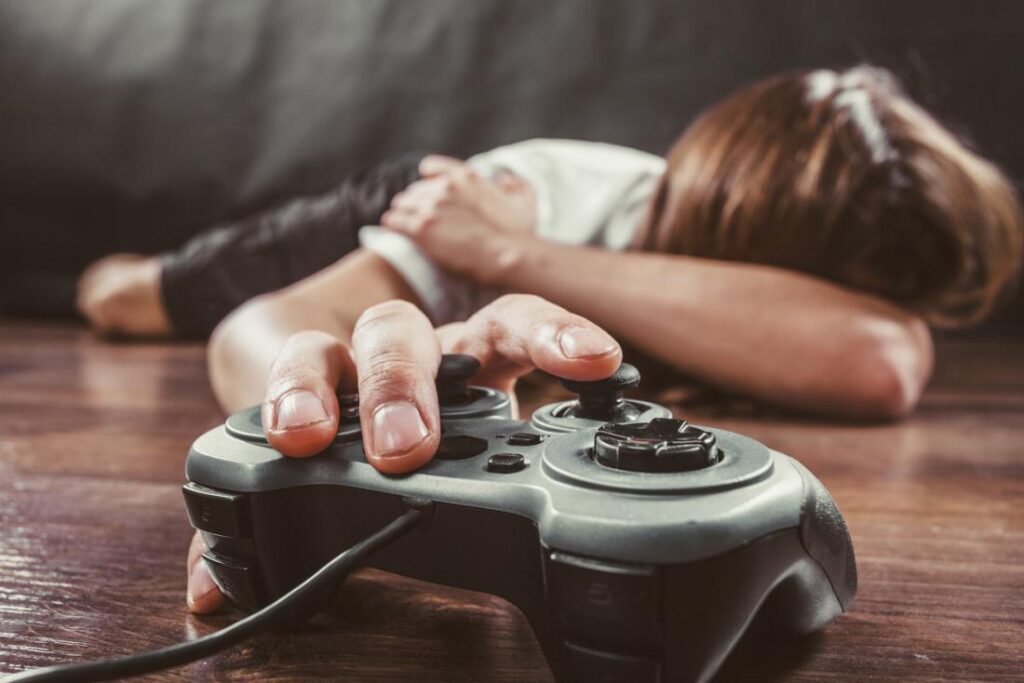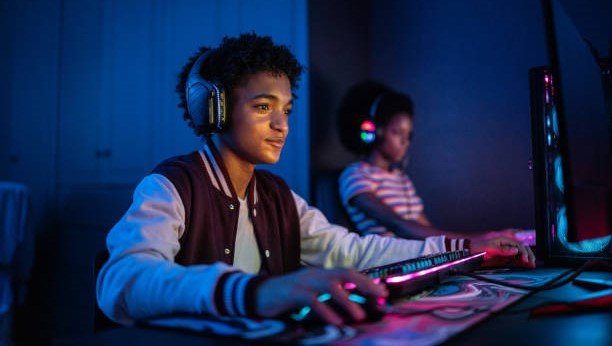
In today’s digital age, video games have become an integral part of childhood. They provide entertainment, social connection, and even skill development. However, parents, educators, and mental health experts are increasingly concerned about the potential negative effects gaming can have on children’s well-being—both mentally and physically.
Mental Health Risks: When Gaming Takes Control
While video games can offer moments of joy and connection with peers, they also pose serious mental health risks. One of the most alarming issues is gaming addiction. Children, especially teenagers, are vulnerable to the dopamine rewards associated with video game achievements. These frequent, short-term rewards can create compulsive playing behavior, making it harder for kids to engage with real-world activities that yield slower, less frequent rewards. This disconnect can lead to social isolation, anxiety, and even depression.
In severe cases, children may struggle with balancing their gaming habits and real-life responsibilities. Excessive gaming can replace social experiences, leading kids to avoid meaningful face-to-face interactions. As they immerse themselves in virtual worlds, they may find it increasingly difficult to establish friendships or build relationships outside the gaming space.

Physical Health Challenges: Screen Time Over Activity
Extended gaming sessions mean more time spent sitting, which contributes to physical health problems. Reduced outdoor activity can result in poor fitness levels, weight gain, and even sleep disruption. Research shows that screen exposure before bedtime affects melatonin levels, leading to difficulties in falling asleep and poor sleep quality. A lack of sleep in children often causes attention deficits, mood swings, and poor academic performance.
Moreover, gaming doesn’t provide the physical benefits that outdoor play offers, such as fresh air, physical coordination, and exposure to sunlight. This lifestyle imbalance can trigger long-term health issues, such as posture problems and digital eye strain.

The Social Element: Friend or Foe?
Video games can foster social interaction among kids, particularly through online multiplayer games. However, these connections are often limited to virtual spaces, preventing children from developing essential interpersonal skills. In many cases, children begin to rely solely on online friendships, avoiding real-world relationships that require face-to-face communication.
The constant social interaction within games also exposes children to cyberbullying and inappropriate online behavior, adding to their mental health burdens. It’s essential for parents to monitor not just how much their children are gaming but also the nature of the content and interactions they engage in.

Many children use gaming as an escape from academic pressures, social challenges, or family difficulties. The virtual world provides them with the thrill of quick achievements and instant gratification, often lacking in real life. However, this can create a dangerous cycle of escapism, where children struggle to cope with real-life challenges.
Experts warn that this reliance on video games for emotional fulfillment can leave kids unprepared to manage stress and setbacks in adulthood. The game environment offers a safe space to succeed, but when faced with real-world difficulties, children may feel overwhelmed and ill-equipped to handle failures.

Balancing Screen Time: The Parent’s Role
Parents play a crucial role in setting boundaries and guiding their children toward a balanced life. It’s essential to limit screen time and encourage alternative activities such as reading, outdoor play, or creative hobbies. As noted by experts, children lack the ability to self-regulate their gaming habits, making parental involvement essential.
Rather than banning video games outright, parents can focus on positive reinforcement by promoting family time, board games, or sports. Teaching children the importance of digital well-being—similar to healthy eating habits—helps them make better choices regarding gaming and other screen-based activities.

Conclusion: Striking the Right Balance
Video games are here to stay, and their role in children’s lives will continue to evolve. However, it is essential to recognize the potential risks they pose, especially when gaming becomes excessive. Parents, educators, and mental health professionals must work together to ensure that children engage with video games in a way that complements their development, rather than undermines it. Encouraging balanced activities, promoting healthy digital habits, and nurturing real-world relationships can help children thrive both in the virtual world and in life.

image courtesy: health.harvard.edu






